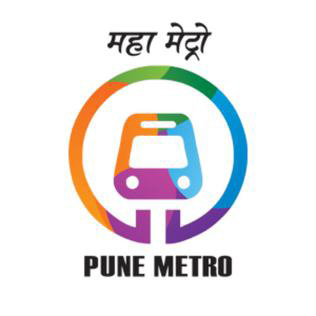Chennai: On behalf of the operator Maharashtra Metro, TÜV India is carrying out the production monitoring of trains’ aluminium car-body until mid-2023. These trains will serve Pune in the future. What’s more, the independent safety assessment of the train, its components and the inspection of the factories in India and Italy will be carried out.
As the second largest city in the Indian state of Maharshtra, Pune has undergone rapid economic development in recent years and has become an industrial centre: Companies from the automotive, light industry, software and mechanical engineering sectors are at home here. Five million people live in the greater Pune area who want to get to work and back home again. But the transport infrastructure has not been able to keep up with the rapid economic development. That's why the city decided to build a metro – the foundation stone was laid in 2019. As early as this year, the first trains are to run on two lines. In two years, another line is to be added.
A total of 34 trains with three train sections each are to run on the initially more than 30-kilometre-long line with 30 stations, five of which will be in tunnels. Most of the trains will be manufactured by Titagarh Wagons at its Indian plant, although some will be built by its subsidiary Titagarh Firema in Italy. The client is Maharashtra Metro, a joint venture between the Indian government and the state of Maharashtra.
The special feature: for the first time in India, aluminium body trains are to be used: "For us, this is a very interesting new territory in terms of production supervision”, is how V. Viswanathan, Executive Vice President Railways, Renewables & Infrastructure of TÜV India, describes the task. "We have not worked with aluminium train set bodies before, so this is an exciting challenge.“
The trains are to travel semi-automatically on the network (GoA2): The journey itself is carried out fully automatically, the driver is responsible for door control, and triggers the journey. However, if necessary, the driving control can be taken over immediately. TÜV India will conduct a comprehensive, independent safety assessment for the trains and their sub systems.
Over the course of a total of three years, TÜV India's rail experts will monitor the production of the train sets in the factories in Italy and India, as well as inspect the factories themselves. "During the Covid-19 pandemic, of course, this is anything but an easy task," says Jayesh Patel, TÜV India’s Head Rolling Stock. Travelling is a first hurdle, he says, a second being special hygiene concepts in the factories. "We hope to get back to the old normal soon." Every single train set has to be inspected before it is put into operation, and a complete safety assessment is carried out according to CENELEC standards and specifications of Maharashtra Metro.
When the first trains will roll through and under Pune later this year, Amit Kumar Yadev wants to be among the first passengers to personally experience how “his” train rolls. And then quite a few colleagues from TÜV India will certainly also travel to work and back home on the new metro every day.
About TÜV NORD GROUP
Since our foundation more than 150 years ago, we have been the global byword for security and trust. As a knowledge-based company, we have the digital future firmly in mind. With specialists ranging from engineers and IT security professionals to professionals for the mobility of tomorrow, we use our expertise in over 100 countries to ensure that our customers will be even more successful in the networked world.

